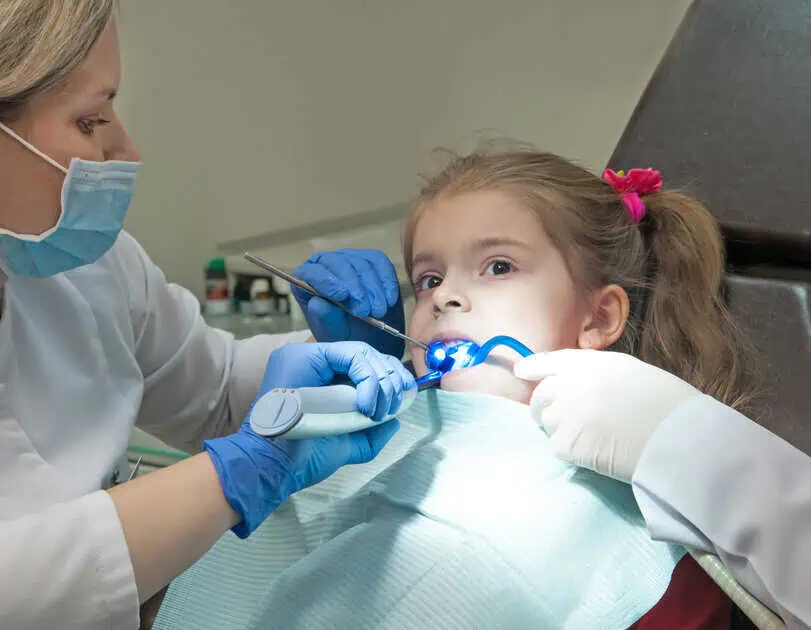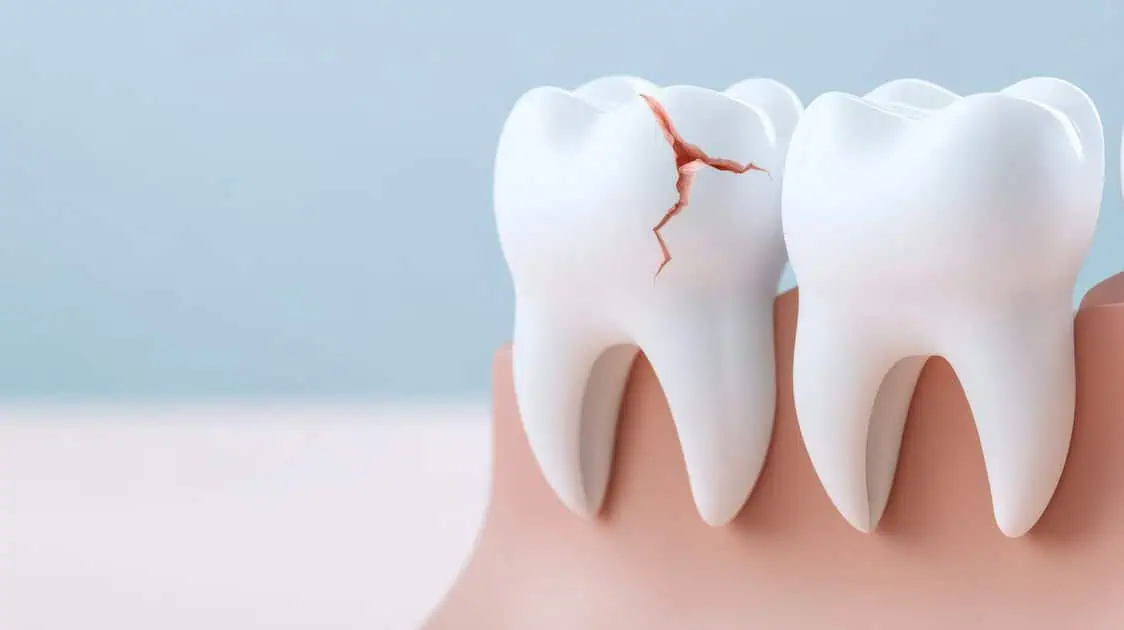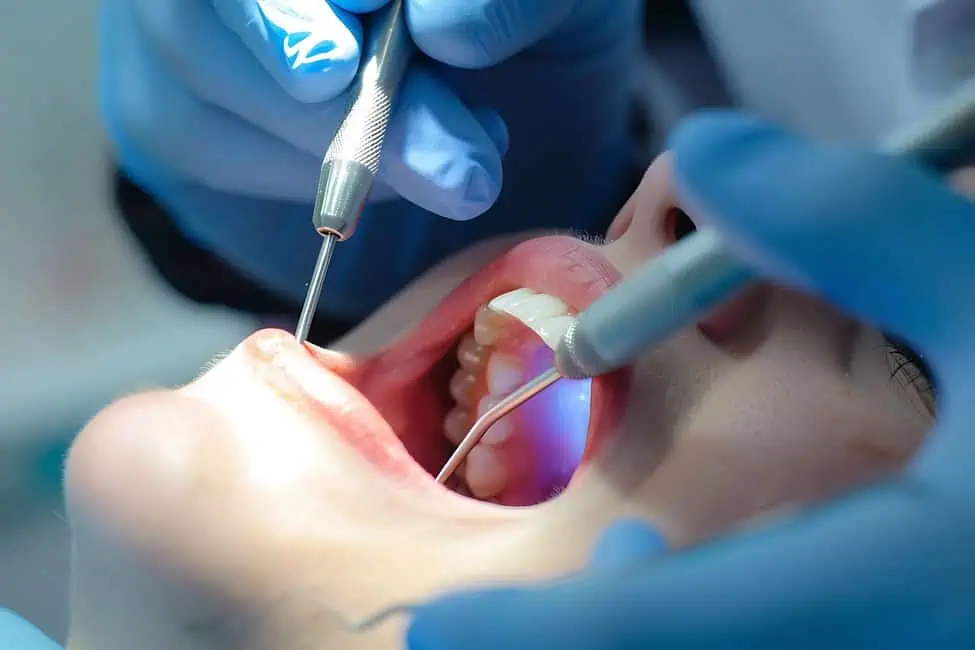Table of Contents
Traumatic dental injuries can occur unexpectedly and require swift and careful attention. These injuries, which might arise from a sports accident, a slip and fall, or an unexpected event, vary from simple chips in teeth to more severe avulsions. At Endodontic Specialists by Solomon Dental, we prioritize safe and effective dental care, highlighting the significance of this understanding. Our exploration covers the different forms of dental trauma, their origins, immediate response measures, and comprehensive treatment plans. Our goal is to offer insightful guidance on managing and recovering from these dental crises, underscoring the necessity of preserving dental health and averting additional complications.
Introduction to Traumatic Dental Injuries
Traumatic dental injuries, a prevalent concern in dental health, can occur in various forms and require immediate attention. This guide aims to clearly understand these injuries, emphasizing their impact and the necessary steps for effective management.
- Defining Traumatic Dental Injuries: Traumatic dental injuries involve teeth, gums, or jawbone damage. These injuries range from minor chips to severe tooth displacement or loss.
- Common Causes of Dental Trauma: Sports accidents are a leading cause of dental injury, especially in contact sports. Falls, vehicle accidents, and even everyday activities can lead to dental trauma.
- Types of Traumatic Dental Injuries:
- Chipped or fractured teeth are often the most common form.
- Avulsed teeth, where a tooth is completely knocked out.
- Luxation, where teeth are loosened or displaced.
- Immediate Response to Dental Injury: Quick action can save a tooth; keeping them moist is crucial for avulsed teeth. Seeking primary dental care is essential for all types of dental trauma.
- Long-Term Implications: Untreated dental injuries can lead to complications like infection or misalignment. Long-term care may involve therapeutic procedures to maintain oral health.
- Prevention Strategies: It is essential to wear protective gear while playing sports, and regular dental check-ups are necessary to maintain oral health.
- Solomon Dental’s Approach to Dental Trauma: At Solomon Dental, we emphasize the importance of immediate and effective treatment. Our team is equipped to handle various traumatic dental injuries, ensuring a swift and safe recovery.
Common Types of Traumatic Dental Injuries
Traumatic dental injuries can vary significantly in severity and type. This section provides an in-depth look at the most common forms of dental trauma, helping you understand each type and its implications.
- Chipped or Fractured Teeth: Chipped teeth are frequent in dental trauma, often resulting from biting down on something hard or receiving a blow to the mouth. In addition to minor cracks and breaks, fractures can also damage the nerve in the tooth.
- Dislodged (Luxated) Teeth: Injuries where teeth become partially dislodged from their position are known as luxated teeth. This type of dental injury requires immediate attention to reposition and stabilize the tooth.
- Avulsed Teeth (Complete Knockouts): One of the most severe forms of dental trauma, avulsed teeth refer to teeth wholly knocked out of their sockets. Prompt treatment is crucial, including keeping the tooth moist and seeking immediate dental care for the possibility of reimplantation.
- Root Fractures: A root fracture involves a break in the tooth’s root, often occurring below the gum line. This type of dental injury is typically diagnosed through X-rays and may require specialized treatment like root canal therapy.
- Intrusive Injuries: Intrusive injuries occur when the tooth is driven into the jawbone, often due to a forceful impact. These injuries are complex and can affect both the tooth and the surrounding bone structure.
- Concussion and Subluxation Injuries: Concussion injuries involve a tooth receiving a heavy blow but not being displaced or fractured. Subluxation consists of a tooth being loosened but not replaced, often causing pain and requiring careful monitoring.
Immediate Actions and Emergency Care for Traumatic Dental Injuries
When it comes to dental trauma, the first few moments after an injury can be crucial in determining the outcome. Here’s a guide on the immediate actions and emergency care steps to take during traumatic dental injuries.
- Assess the Injury: Quickly evaluate the type of dental injury. Identifying the injury type is the first step, whether it’s a chipped tooth, a knocked-out tooth, or a fractured jaw.
- Handle Avulsed Teeth with Care: If a tooth has been knocked out, hold it by the crown and rinse it gently with saline or milk if dirty, but avoid scrubbing the root.
- Preserve the Avulsed Tooth:
- Keep the avulsed tooth moist at all times.
- If possible, reinsert it into the socket gently.
- If not, place it in milk or a saline solution.
- Control Bleeding: Press gently with a clean cloth or gauze to the injured area to control bleeding.
- Cold Compress for Swelling: Use a cold compress on the cheek or lips over the injured area to reduce swelling.
- Seek Immediate Dental Care: Visit a dentist or an emergency room immediately, especially in avulsed or luxated teeth.
- Avoid Certain Actions: Do not apply painkillers directly to the gums or injured tooth, as it can cause gum tissue burns.
- Temporary Measures for Minor Injuries: Cover sharp edges with dental wax or sugar-free gum for minor chips or fractures.
- Follow-Up Care: Once the dental trauma has been treated, follow-up care is vital to ensure proper healing.
Treatment Options and Procedures for Traumatic Dental Injuries
Effective treatment is crucial for recovery from traumatic dental injuries. This guide presents dental trauma treatments and procedures to ensure patients receive appropriate care.
- Reattachment and Bonding for Chipped or Broken Teeth: Dental bonding using tooth-colored composite resin is often sufficient for minor chips. – In cases where a broken piece of tooth is available, reattachment is possible using dental adhesives.
- Root Canal Therapy for Exposed or Damaged Pulp: Root canal therapy is typically necessary to save the tooth and prevent infection if a fracture or injury exposes the tooth’s pulp.
- Dental Crowns for Extensive Damage: A dental crown is needed if a significant portion of your tooth has been damaged.
- Splinting for Loose or Dislodged Teeth: Teeth that are loose or partially knocked out (luxated) may be stabilized and held in place with a splint for a period.
- Reimplantation for Avulsed Teeth: Successfully reimplanting a knocked-out tooth is possible, primarily if the patient seeks immediate care and the tooth has been adequately preserved.
- Surgical Interventions for Severe Cases: Some traumatic dental injuries may require surgical intervention, especially in jaw fractures or severe displacement of teeth.
- Orthodontic Treatment for Alignment Issues: Post-injury, orthodontic treatment might be necessary to correct any misalignment caused by the trauma.
- Dental Implants for Tooth Loss: Implants can replace missing or unsalvageable teeth.
- Follow-Up and Rehabilitation: Continuous follow-up is essential to monitor healing and address complications. Rehabilitation exercises might also be recommended to restore jaw function.
Consult a Professional
Understanding these treatment options and procedures for traumatic dental injuries is vital for anyone who has experienced dental trauma. Prompt and appropriate treatment not only aids in the healing process but also helps preserve long-term oral health. Don’t let dental injuries compromise your oral health or quality of life. Consulting with our professional endodontic specialist will provide clarity and guide individuals toward the best dental treatment option.
Takeaway
Addressing traumatic dental injuries is crucial for maintaining long-term oral health and well-being. At Endodontic Specialists by Solomon Dental, we are committed to providing expert care and advanced treatment options customized to your specific dental trauma needs. We encourage you to take the vital step towards recovery and optimal dental health. Contact us today to find your treatment options, or book an appointment with our skilled professionals. Let us help you restore your smile and ensure the best possible outcome for your dental health.







